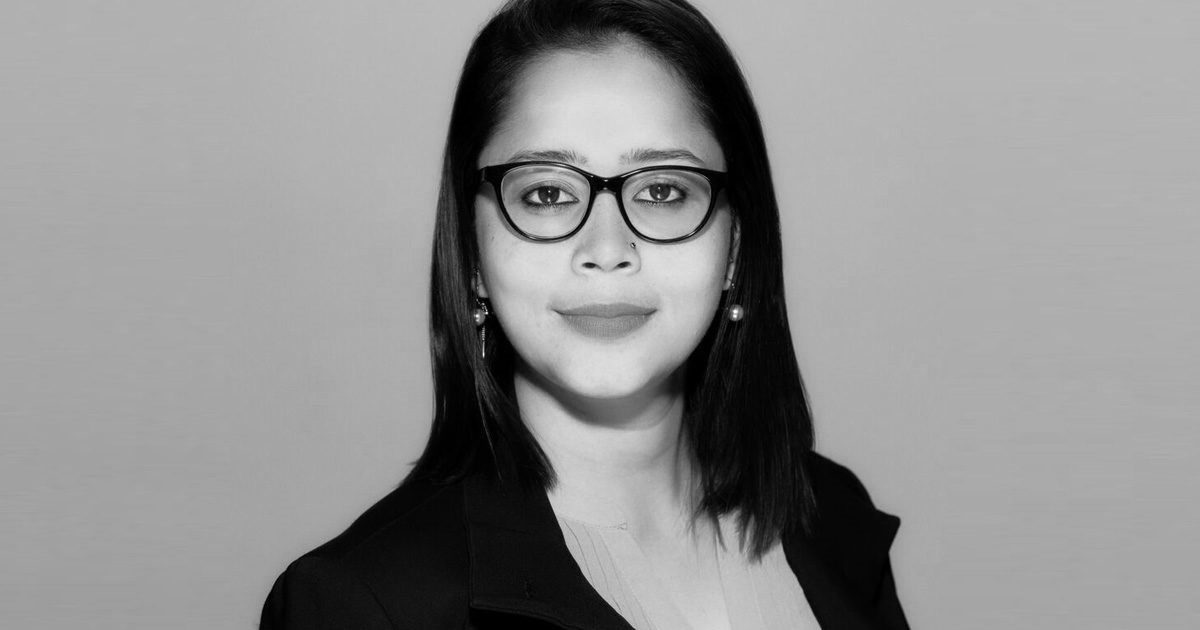
Employee Spotlight – Shaeema Zaman Ahmed
The work-life of Ph.D. student Shaeema Zaman Ahmed is presented in this spotlight blog. Her research focuses on the effects that quantum games and simulation tools can have. In honor of Women In Science Day, a focus is shared to increase the representation of women in science!
How did you start to work here and when?
I started working here as a volunteer in the quantum education group in the winter (November) of 2017. I was new to Denmark and was looking for job opportunities. I had read about ScienceAtHome somewhere online, and then I met Rajiv, who happens to be one of their collaborators. He suggested that I contact Jacob Sherson and that’s how the ball started rolling.
What is your role at ScienceAtHome?
I am a Ph.D. researcher in physics, and my role is investigating the use and impact of quantum games and simulation tools in quantum control research, education, and outreach. I was part of the design process in Quantum Moves 2 and Lab Manager. This included discussions and design iterations on how the problems could be visualized in the game and what features should be implemented in the games so that players can contribute in the best possible way. My broad role at SAH can be considered as a mediator to understand the needs from a physicists’ point of view and adapting that into a format that is accessible to players without compromising on the underlying science. Furthermore, investigating how games can be used for research, education, and outreach such as studying how crowdsourcing solutions through games can contribute to research. Also, how simulation tools like Quantum Composer can enhance learning and teaching in quantum physics. Additionally, how games and simulation tools can be used in outreach settings such as in public events (e.g. game cafés or science festivals) and in inquiry-based learning.
What are you passionate about in relation to your work?
I am passionate about understanding how games and simulations can be so powerful and impactful in quantum physics. Additionally, I am also passionate about science communication and making sure that people do not feel that science is difficult and scientists are geniuses.
I really like to demystify the intimidating parts of science and make science as a career more welcoming.
What is your best work-related memory?
I think my greatest memory would be when I had a few conversations with students about their difficulties in learning quantum physics. This was during my investigation on the impact of Quantum Composer in quantum physics education. It felt so real because I was there in their shoes a long time ago before starting my Ph.D., and quantum physics is tough at the beginning for any student. I think that moment of realization and connecting with students was indeed a great experience because we often talk about our successes and not our difficulties or failures. But here, we were discussing our difficulties together.
What is your favorite thing about working here?
I get to play lots of games as part of my research work! Also, I really like the interdisciplinary nature of the group. For my physics projects, I have collaborated with game developers and learning scientists within the group, which I think is very unique.
What is important for you to focus on for Women In Science Day?
I would like to take the occasion on Women in Science Day to increase the representation of women in science and remove prejudices. People tend to think that there are not enough women in science or that they may not be skilled enough. There are a considerable number of women in science. Not as many as men, but reaching an equal 50-50 number is not the most important thing to me. Rather, increasing representation and constantly asking ourselves about the prejudices we have regarding women in science should be the focus. Next time you talk about a scientist, mention a story about a female scientist (we can go beyond Einstein and Feynman!) in your presentation or story or blog. For instance, I like to share Cecilia Payne-Gaposchkin’s groundbreaking contribution in the establishment of hydrogen as the primary component in stars and the universe as I’ve met very few people who know about her contribution and her struggle to establish herself as a professor. Another example which I like to talk about is when I heard Shohini Ghose, a quantum physicist in one of her talks, say that she has to express her stance on “Are you a woman who’s a physicist?” or “Are you a physicist who’s a woman?” I really doubt men find themselves in such situations. Sharing these stories could be one way to increase the representation as scientists and show examples of prejudices people have....slow and steady, but it has to start someday.
Interested in trying one of the games Shaeema worked with? The game Lab Manager sets you in charge of a physics lab, where you have to hire students, apply for grants and do science! However, money is limited and unexpected things can go wrong! Find out how it is to be a scientist while learning about physics!
Or maybe you’re considering opportunities for volunteering in a research environment as Shaeema did? Check out our Internship and student project page and get in touch if you’re interested!
